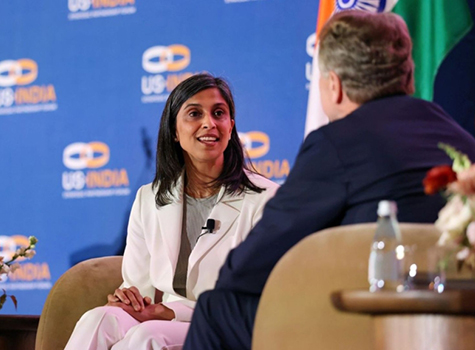
By Samir Shukla
Attacking the “media” has become an all-purpose excuse for politicians. The news gatherers, reporters, editors, and journalists that put their reputations on the line, as well as their lives in some cases, are among the last hopes of unwrapping facts and truth remaining for the general public. Tapping and cross-referencing several sources of reliable information is the best way to stay informed about domestic and international affairs, financial workings of corporations, and spending of taxpayers’ money.
That is not to say journalists don’t make mistakes and aren’t called out for making them. They are generally held accountable, sometimes suspended or even fired from their organizations, for errors or misreporting. If they own up to their mistakes, make corrections, and move forward to continue working with integrity, the spread of fact-based stories will despoil the workings of fake news spreaders. This is a good thing and helps to keep true journalism honest and reliable.
Doing hard news is not easy, and getting the facts right is a demanding and worthy pursuit. Veteran broadcast journalist Dan Rather knows the effort involved.
Rather spoke at Queens University’s Learning Society Spring Lecture on February 20, 2018 at Blumenthal in Charlotte, NC. It was an informative talk followed by Q&A discussion on the state of affairs, contemporary journalism, and other topics.
Rather was a former CBS News anchor and 60 Minutes correspondent. He began his career more than 50 years ago with intrepid reporting and continues even today to uphold journalistic standards and truth seeking. He is practically a walking encyclopedia of hard and investigative journalism. He has covered everything from the Kennedy assassination to 9/11, Watergate to the wars in in Iraq and Afghanistan.
Rather remains a symbol of quality journalism despite his resignation from CBS news in 2005 for a story that was later retracted by the network (the Killian documents controversy, sometimes known as “Memogate”). Rather maintains the story was essentially true, and apologized for his missteps, but his reputation and career were both impacted severely.
During his appearance in Charlotte he was asked what about the state of journalism. He stated that journalists should “get back to basics. Get as close to the truth as possible,” when asked about contemporary journalism and its objectives. “Get the facts, analysis based on facts, and connect the dots.” Journalistic integrity remains the prime focus while stating that “good writing is bedrock of the craft.”
When asked about the future of journalism he joked, “He who lives by the crystal ball eats a lot of glass.” A few years ago he thought that newspapers were “doomed” but they’re still hanging in there, emphasizing that “Quality journalism will survive whatever form it takes.” He said the disdain for media and saturation include 24 hour news channels, which are “designed to entertain. It is cheaper to have 4 people shouting at each other than have someone go out and do news reporting and gathering.”
He spoke further about news gatherers (“the ones that do [the] hard work”) and news packagers (“covering other people who gather news”), in essence saying that news gathering has shrunk. Rather reflected on his work at CBS News were the bosses and editors saw news as a public trust.
He also emphasized that America’s top three priorities should be Education, Education, and Education and bemoaned that “scientific illiteracy” will hurt the United States in the long run.
He offered his experiences on many other things that affect American politics and life, including Gerrymandering, Citizens united and other special interests that are “all about money.”
After the recent mass school shooting in Parkland, Florida, he said, “This is the first time I’ve felt that this is a turning point. Now students and children are active and involved. There is moral forcefulness of students… we’ll see how it goes.” Adding, “probably most one can hope for is basic gun control.”
He said there are some similarities between Watergate and the current Russia investigations of President Trump. “Nixon acted like he had something to hide. Trump is acting like he has something to hide.”
Rather was named the 2012 recipient of the Edward R. Murrow Award for Lifetime Achievement, and has received many other prestigious awards. He recently launched a production company called “News & Guts.” He is developing a series of projects ranging from an acclaimed interview program on AXS TV to documentaries and digital video content.
The Learning Society of Queens presents a semi-annual speakers series that draws experts on important contemporary issues to the public. For each event, an on-campus, student-centric lecture is also presented. Students are invited to ask questions and converse with the lecturers.
For more information on Queen’s University’s Learning Society, visit http://www.queens.edu/community/learning-society.h…
Samir Shukla is the Editor of Saathee magazine



